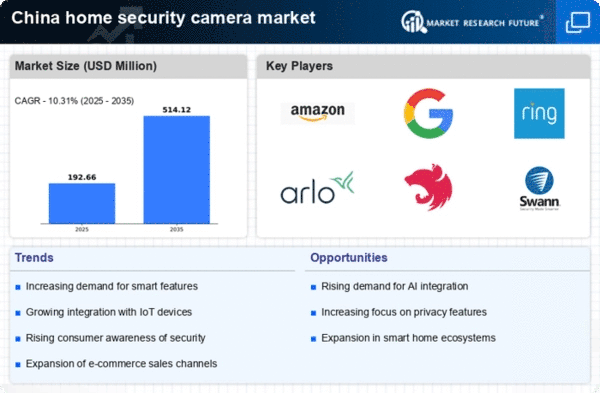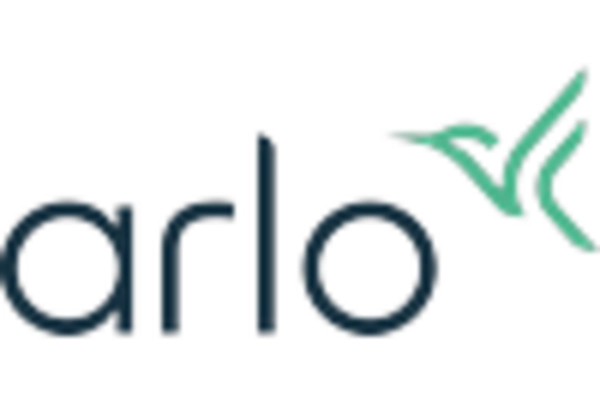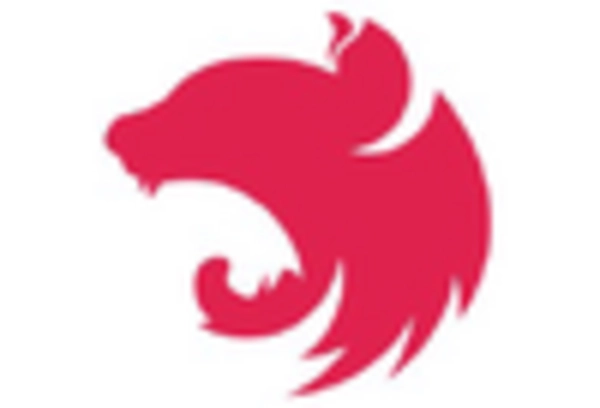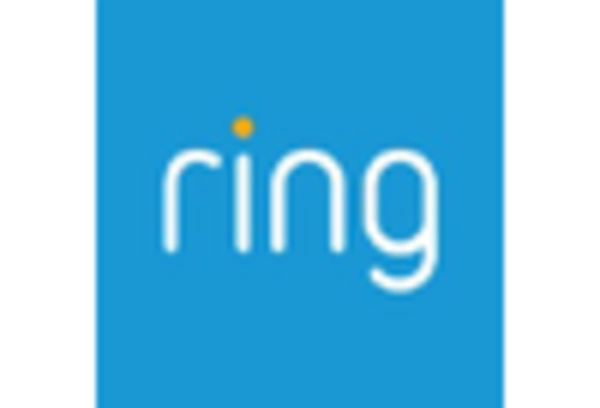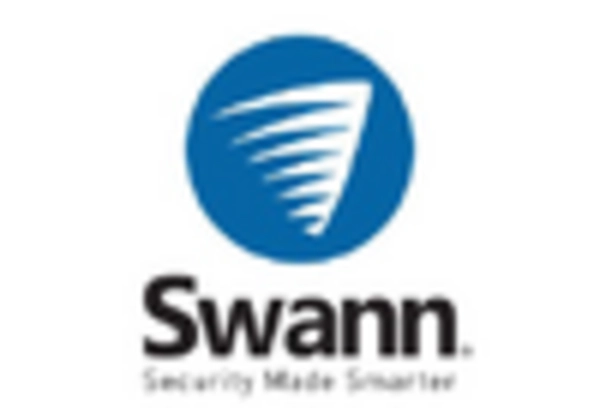Rising Crime Rates
The increasing incidence of crime in urban areas of China appears to be a significant driver for the home security-camera market. As residents seek to protect their homes and families, the demand for security solutions has surged. Reports indicate that property crimes have risen by approximately 15% in major cities over the past few years. This trend has led to a heightened awareness of security needs among homeowners, prompting them to invest in advanced surveillance systems. The home security-camera market is likely to benefit from this growing concern, as consumers prioritize safety and security in their purchasing decisions. Furthermore, the availability of affordable and technologically advanced cameras has made it easier for homeowners to adopt these solutions, thereby expanding the market's reach.
Government Initiatives
Government initiatives aimed at enhancing public safety are likely to bolster the home security-camera market in China. Various local governments have implemented programs to encourage the installation of surveillance systems in residential areas, viewing them as a deterrent to crime. For instance, subsidies and tax incentives for homeowners who invest in security technology have been introduced in several provinces. These initiatives not only promote the adoption of security cameras but also raise awareness about their benefits. As a result, the home security-camera market is expected to experience increased demand, driven by both consumer interest and governmental support. This alignment of interests between the public sector and consumers may lead to a more secure environment, further stimulating market growth.
Rising Disposable Income
The increase in disposable income among the middle class in China is a crucial driver for the home security-camera market. As more households experience financial growth, they are more inclined to invest in home security systems. The trend of urbanization has also contributed to this phenomenon, with more individuals moving to cities and seeking to enhance their living conditions. It is estimated that the middle class will account for over 50% of the population by 2030, leading to a greater demand for home security solutions. This demographic shift suggests that the home security-camera market will likely see substantial growth as consumers prioritize safety and invest in advanced security technologies.
Technological Advancements
Rapid advancements in technology are reshaping the home security-camera market in China. Innovations such as high-definition video, night vision, and cloud storage capabilities are becoming standard features in new products. The integration of smart technology, including mobile app connectivity and remote monitoring, enhances user experience and convenience. As of 2025, it is estimated that over 60% of new security cameras sold in China incorporate smart features, reflecting a shift towards more sophisticated systems. This trend not only attracts tech-savvy consumers but also encourages traditional users to upgrade their existing systems. Consequently, the home security-camera market is poised for growth as manufacturers continue to innovate and meet the evolving demands of consumers.
Increased Awareness of Home Security
There is a growing awareness among Chinese consumers regarding the importance of home security, which is significantly impacting the home security-camera market. Educational campaigns and media coverage highlighting the risks of burglary and theft have contributed to this heightened awareness. As a result, homeowners are increasingly recognizing the value of investing in security solutions to protect their properties. Surveys indicate that nearly 70% of homeowners in urban areas consider security cameras a necessary investment. This shift in perception is likely to drive demand for home security cameras, as consumers seek reliable and effective solutions to safeguard their homes. The market is expected to expand as more individuals prioritize security in their purchasing decisions.


